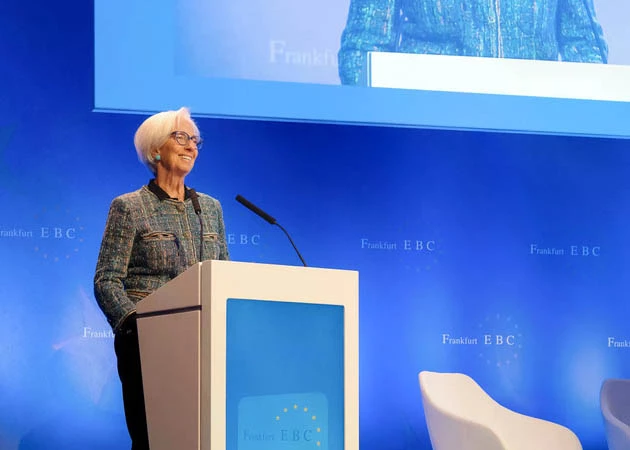Europe needs to strengthen its economic resilience
European Central Bank (ECB) President Christine Lagarde has warned that Europe is becoming increasingly vulnerable to shocks such as US tariffs, and is falling behind in future growth drivers such as artificial intelligence (AI). She has proposed a series of bold reforms to help the European Union (EU) maintain its position as one of the world’s leading economic hubs.
 |
| European Central Bank President Christine Lagarde. (Photo: ECB) |
Speaking at a recent banking conference in Frankfurt, the ECB chief stressed that the bloc is becoming ever more dependent on other countries for security and supply of critical raw materials.
More than 90% of the EU’s rare-earth demand is imported from China, while around half of the bloc’s gas supply comes from the US. The EU recently agreed to purchase 750 billion USD worth of energy from its partner across the Atlantic.
Immediately after the US threatened to impose a 30% tariff, the EU’s GDP in the second quarter of 2025 grew by only 0.2% compared with the first quarter, before inching back up to 0.3% in the third quarter following the agreement on a 15% tariff at the end of July.
Lagarde pointed to the worrying reality that, while the international situation is becoming more complex and shocks are becoming increasingly severe globally, Europe’s domestic market remains stagnant, particularly in sectors that will underpin future growth such as AI and the digital economy. The stringent requirements of the Artificial Intelligence Act, in force since August 2024, are causing the EU to lag behind the US and China, regions with faster innovation capacity, lower compliance costs, or stronger infrastructure.
For decades, the European economy relied on exports of key products such as automobiles, industrial equipment and pharmaceuticals. However, this model is no longer functioning effectively as the continent’s economic growth in recent years has been subdued, far below that of the US and China. EU GDP growth in 2023, 2024, and the forecast for 2025 stands at 0.4%, 1.1% and 1.4% respectively, compared with 3.1%, 2.8%, and 1.9% for the US, and 5.2%, 5%, and 4.8% for China.
Lagarde said the EU must reinforce its domestic economy as a source of strength in an increasingly uncertain world. This is also the general trend among countries in today’s global context. The ECB President has put forward a series of reforms aimed at boosting regional growth.
Fragmentation in the EU’s financial markets is making it difficult for businesses across the continent to raise large amounts of capital, while significant European savings continue to flow out of the bloc, mainly to the US market.
The EU aims to create a single financial market, with efforts focused on removing cross-border legal and regulatory barriers, such as completing the banking union by establishing a single supervisory mechanism led by the ECB to oversee major banks.
At the same time, it is pushing for a capital markets union with measures including harmonising rules on insolvency law, securities law, and taxation to encourage cross-border investment and enable companies to issue shares or bonds more easily across the EU.
In the digital economy, the European Commission (EC) recently unveiled Digital Omnibus, a legislative package aimed at simplifying digital regulations — a strategic step intended to create a more favourable business environment, ease AI requirements, reduce costs and administrative procedures, and strengthen the innovation capacity of Europe’s digital economy.
With expected savings of up to 5 billion EUR in administrative costs by 2029 and 150 billion EUR thanks to the European Business Wallet, the step is considered an important step for Europe to maintain its competitive position in the digital age.
However, as a bloc of 27 member states, any law introduced must go through a demanding process, from proposal and negotiation to approval and entry into force, requiring significant time and strong political will from all members.
Clearly, the EU faces a significant challenge as it strives to carry out reforms to enhance its economic resilience and reinforce its status as one of the world’s leading economic centres.
NDO





READER COMMENTS